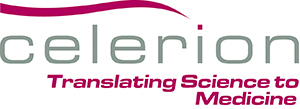Non-alcoholic fatty liver disease (NAFLD) / Non-alcoholic steatohepatitis (NASH) has been pronounced the next major health epidemic. This declaration is, in part, due to the lack of medicinal therapies to treat or manage NAFLD/NASH. To address this unmet need, the pharmaceutical and biotech industries have geared up for an epic race to the market. As a new drug target indication, little regulatory guidance is available. However, looking to the leaders of the pack, valuable insight into study design, choice of patient population and adverse events experienced by subjects can be surmised. This webinar will describe non-invasive approaches to facilitate early phase NAFLD/NASH clinical studies.
Key learning objectives:
- How to optimize early phase NAFLD/NASH clinical studies
- How NAFLD/NASH soluble biomarker can enhance early phase studies
NAFLD is an umbrella term describing excessive hepatic fat accumulation not associated with alcohol intake or viral infection. NAFLD is a chronic disease that ranges from simple steatosis (fatty liver) to NASH to advanced cirrhosis. NASH is a severe form of NAFLD often characterized by hepatic inflammation and fibrosis. Cirrhosis results from extensive fibrosis and can be causal for end-stage liver failure. The current landscape of NAFLD/NASH drug development programs includes an assortment of anti-steatotisis and anti-fibrotic agents. The merits and limitations associated with these different drug development strategies will be addressed.
Liver biopsy is the gold standard for clinical diagnosis of NASH as well as evaluation of a treatment response. Liver biopsies are invasive procedures, biased by sampling error and reader interpretation. A grated system, the NAFLD Activity Score (NAS) was developed to regulate this process among liver centers. Although NAS is independent of fibrogenesis, a fibrosis rating is also essential for clinical research studies. Biopsy-related outcomes for NAFLD/NASH clinical studies include the resolution of NASH without worsening fibrosis. An updated definition of NASH resolution has been recently implemented for all on-going and future NAFLD/NASH studies. How this revised definition will impact clinical studies will be discussed.
Measurements of lipid metabolism can be readily applied to proof-of-concept studies. Integrating indirect calorimetry, de novo lipogenesis or glucose/mixed meal tolerance tests measurements into an early phase study can provide essential information regarding treatment effects on fat oxidation, lipid synthesis and insulin sensitivity. In addition, a number of non-invasive approaches to assess liver fat content and fibrosis have been developed and validated against the gold standard to expedite clinical research. Advantages and disadvantages of non-invasive modalities such as ultrasound, elastography and magnetic resonance will be outlined. Incorporation of these techniques in both early and late phase clinical studies can be a valuable pharmacodynamic tool to evaluate drug efficacy.
Soluble biomarkers can also be utilized to provide robust results in a cost-effective and non-invasive manner. The soluble biomarkers can be used to track disease progression as well as therapeutic outcomes over shorter periods, with the opportunity to assess response to therapeutic treatment earlier in clinical research. The soluble biomarkers that are relevant to NAFLD/NASH can be divided into four biological pathways: oxidative stress, inflammation, hepatocyte apoptosis, and fibrosis. The panels of biomarkers from each of the pathways and the associated analytical methods will be discussed.
Although the NAFLD/NASH race to the market is well underway, a number of challenges face drug development programs; biopsy requirements, lack of validated surrogate biomarkers, and no clear regulatory guidelines. Overcoming these obstacles will not only benefit the pharmaceutical and biotech industry to bring new therapies to market, but will ensure that the millions of NAFLD/NASH patients are treated or cured of this chronic liver disease.
Speakers

Sabina Paglialunga, PhD, Metabolic and Pharmacodynamic Specialist, Celerion
Sabina Paglialunga joined Celerion in April 2015 as a Metabolic and Pharmacodynamic Specialist. She is responsible for providing scientific and operation support for early clinical studies with an obesity, diabetes, or fatty liver disease indication. As a metabolic disease subject matter expert, she draws upon her 10+ years of research experience. Sabina holds a PhD in Biochemistry from McGill University, Canada. Prior to joining Celerion, she completed three postdoctoral fellowships specializing in lipid metabolism and glucose homeostasis. Her extensive metabolic expertise is further illustrated through her publication track record.

Rafiq Islam, MS, Senior Director, Bioanalytical Services, Celerion
Rafiqul Islam is the Senior Director of Bioanalytical Services at Celerion Inc. (NE, USA). In his current role, he is responsible for the scientific and operational leadership of both small- and large-molecule bioanalysis, which includes the development, validation bioanalytical methods and execution of sample analysis to support pharmacokinetic, immunogenicity, bioequivalence and biosimilar studies. Previously, he served as the Scientific Director for Biopharma Services at EMD Millipore. He held similar positions as the head of a bioanalytical department at Covance Inc. (AZ, USA) and Huntingdon Life Sciences (NJ, USA). He also held several positions of increasing responsibility with Curagen Corporation. He has over 18 years of biotechnology industry experience.
Who Should Attend?
This program is intended for senior level professionals from biopharmaceutical companies working on NAFLD/NASH clinical studies, including:
- Heads of Research and Development
- Clinical Pharmacologists
- Project Managers
- Medical Directors
- Clinical Operations Directors, Managers
- Clinical Planning Directors, Managers
- Bioanalytical Scientists
Xtalks Partner
Celerion
Translating science into medicine, Celerion is a premier provider of translational clinical pharmacology sciences from their global locations including North America, Europe and Asia.
Celerion conducts first-in-human, clinical proof of concept and patient dose response studies, cardiovascular safety, ADME and NDA-enabling clinical pharmacology research. Celerion provides full study services including statistics, data management and biostatistics (including PK/PD analysis), and bioanalytical services. For more information please visit celerion.com
Media Partner
You Must Login To Register for this Free Webinar
Already have an account? LOGIN HERE. If you don’t have an account you need to create a free account.
Create Account





